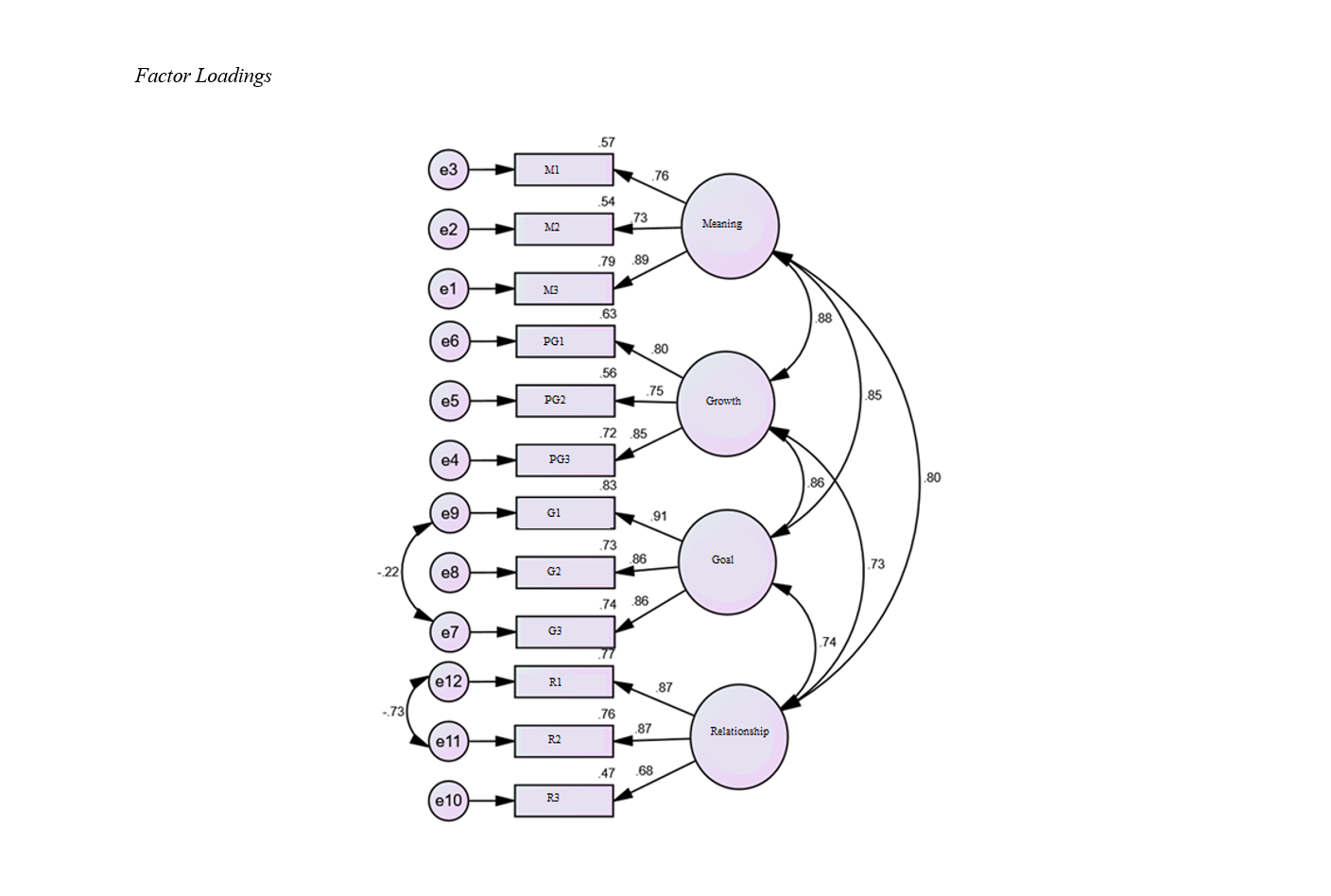Investigation of the Psychometric Properties of the Persian Version of the Relationship Flourishing Scale
Keywords:
Relationship, Flourishing, Psychometric PropertiesAbstract
Objective: This study aimed to validate the Persian version of the Relationship Flourishing Scale (RFS) on a sample of married Iranian students.
Method: The study was descriptive-correlational and applied in nature. The sample consisted of 352 individuals (89% female), selected through multi-stage cluster sampling. The data collection tools included the Fowers et al.'s Relationship Flourishing Scale (2016), Adams et al.'s Sexual Mindfulness Questionnaire (2015), and the short form of Booth et al.'s Marital Instability Questionnaire (1989). Data analysis was performed using SPSS26 and AMOS24 software, utilizing descriptive statistics and confirmatory factor analysis (Cronbach's Alpha, Pearson correlation, and construct validity and reliability).
Findings: The results of the confirmatory factor analysis were satisfactory, confirming the psychometric properties of the Relationship Flourishing Scale. The factor structure of the questionnaire, consisting of four factors (having meaning, shared goals, personal growth, and being in a relationship), was validated. Cronbach's Alpha calculated for the overall questionnaire was 0.83, and for the factors having meaning, shared goals, personal growth, and being in a relationship, it was 0.82, 0.83, 0.89, and 0.80 respectively, confirming the construct reliability. Fit indices (GFI = 0.90, NFI = 0.92, CFI = 0.94, TLI = 0.91, CMIN/df = 4.92) were within acceptable ranges, and construct validity was confirmed.
Conclusions: The factor structure of the original English version of the Relationship Flourishing Scale was replicated, and satisfactory internal reliability was found. Consequently, the translated Persian version of the Relationship Flourishing Scale can serve as a valid tool for assessing the quality of marital relationships in research and clinical settings within the Iranian community.
Downloads

Downloads
Additional Files
Published
Issue
Section
License

This work is licensed under a Creative Commons Attribution-NonCommercial 4.0 International License.




















